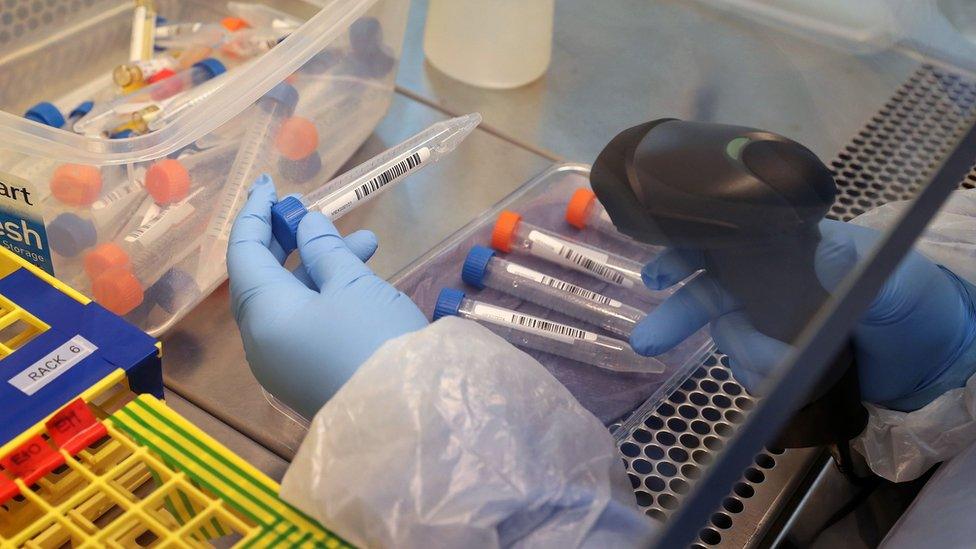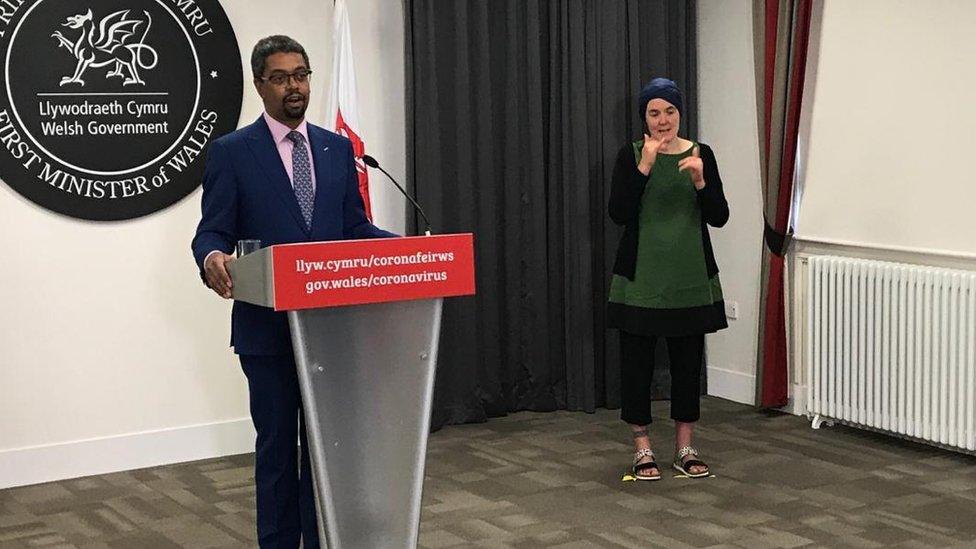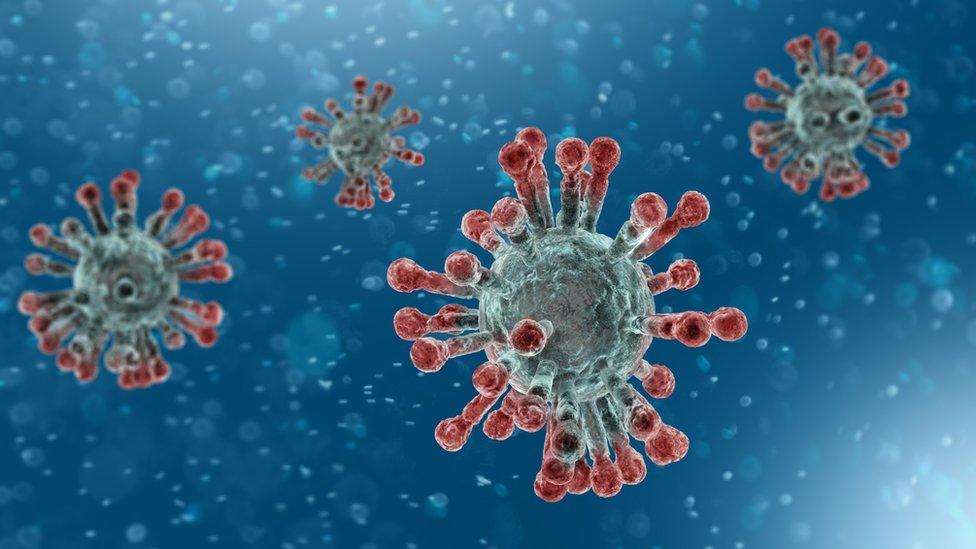Coronavirus: Welsh plan's 36,000 tests estimate dismissed by minister
- Published

Wales' health minister has played down projections in a leaked report for the numbers of tests Wales will need to track and trace coronavirus.
The draft plan says as many as 36,000 tests could be needed.
But Vaughan Gething said the numbers were not "final". "It's not the confirmed national plan," he said.
He said Wales could need fewer than 9,000 tests if a Scottish approach was adopted here.
The Welsh Government, which commissioned the report, is planning a system of tracking and tracing outbreaks of coronavirus so infections can be isolated and Wales can be eased out of lockdown.
Written by Public Health Wales (PHW), it outlines projections for the number of tests required.
It says between 33,300 and 36,000 tests a day will be needed to diagnose symptomatic hospital patients, symptomatic members of the public and to meet its policy on testing in care homes.
The document also projects demand of 3,000-7,000 samples a week to test all symptomatic key workers.
The report says it is likely tracking and tracing of the virus will need to continue at least until the end of 2020.
Current capacity is thought to be 2,100 tests a day. A previous target of having 9,000 tests a day by the end of April was abandoned.

Vaughan Gething took the Welsh Government daily press conference on Tuesday
But in the daily Welsh Government press briefing Mr Gething dismissed the plan's testing figures, saying a note of "caution" was required.
"I think it's important to reflect that the leaked Public Health Wales draft report is exactly that - a draft."
He said the plan was still being worked on. "As a reference point yesterday the Scottish Government set out a track test and trace programme themselves, and they estimated that they will need by the end of May, 15,500 tests," he told journalists.
"If that were the approach we took in Wales we would need under 9,000 tests."
Opposition criticism
Plaid Cymru's health spokesman Rhun ap Iorwerth said: "Having asked experts to advise on a comprehensive test, track and isolate policy is the minister now rejecting the evidence they've presented to him?
"The minister can't argue on the one hand that he is guided by the science while on the other turning down the science-based advice."
Welsh Conservative health spokeswoman Angela Burns said: "Wales needs to follow the science, set ambitious but achievable targets, and massively improve the testing regime here."
"I find it odd that as recently as last week, the first minister said that there was no reason to be following the approach taken by England in terms of testing, but today the health minister has said that Wales could achieve 9,000 tests a day if the Scottish approach is taken."

The Welsh Government is considering using a UK government app being trialled in the Isle of Wight to help the tracing efforts - but want reassurances over privacy and the use of data first.
But Vaughan Gething said he had raised concerns in meetings with ministers from across the UK about the app's use of data, "its privacy, its management, who owns it, to make sure we're not having a central data storage that is going to be used for alternative purposes".
Mr Gething said Welsh ministers would have to make sure the app "provides information and data into the Welsh NHS to make sure we're not having data that isn't usable".
"If those issues can be overcome, then of course, you'd have to ask why on earth wouldn't Wales want to be part of that, and to make use of that technology if it works, if the privacy issues are resolved and crucially you have data available to us here in Wales to help care for people," he added.
All tests 'analysed in Cardiff'
According to the draft plan, as it stands all coronavirus tests are being analysed "within the Public Health Wales Cardiff Microbiology laboratory in University Hospital of Wales" in Cardiff.
The document said in the next phase more laboratory space "will come online across NHS Wales and this will need to be coordinated to maximise efficiency and delivery of appropriate testing for the various testing scenarios".
It calls for the development of a new "central COVID-19 testing facility" and expansion of testing capacity at PHW's regional laboratories in north Wales and Swansea.
The document makes "one over-riding fundamental assumption: transmission of the SARS-CoV-2 virus will continue until either sufficient people have acquired immunity from the infection or mass immunisation of the population with a safe and effective vaccine has taken place".
"This sets the likely timescale for the response to Covid-19 (at least until the end of 2020) and the parameters for the response (immediate to support the lifting of restrictions and medium-term to monitor and intervene to reduce the risk of transmission)," it adds.
- Published5 May 2020

- Published4 May 2020
